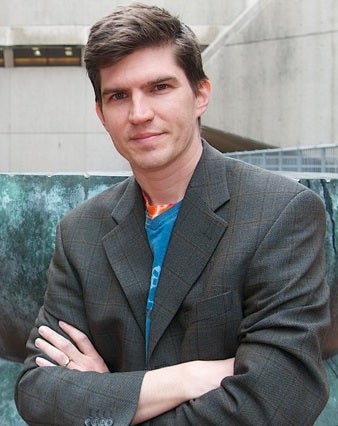Speaker: Dr. Chris Bauch, assistant professor in the Department of Mathematics and Statistics, University of Guelph
 Abstract
Abstract

Mortality due to vaccine-preventable infectious diseases is declining worldwide, thanks to ever-expanding vaccine coverage, especially in the world’s poorest countries. However, as infectious diseases become rare and our memory of them fades, vaccine “scares” and other forms of vaccine exemption are occurring with increasing frequency. In some cases, exemption is rivaling or even replacing accessibility as the primary barrier to ensuring high vaccine coverage and thus global eradication. Mathematical models of infectious disease transmission and vaccination have traditionally left out the aspect of human vaccinating behaviour, but to address the problem of vaccine exemption, it is necessary to incorporate human behaviour into models. In this talk I will describe some of my research over the past 10 years dedicated to advancing the theory and application of behaviour-disease dynamic models, which are mathematical models that couple disease dynamics with population vaccinating behaviour. The goals of this research are: to develop the theory of coupled behaviour-disease dynamics, to better understand the mechanisms behind these coupled dynamics, to empirically validate behaviour-disease models, and eventually to harness such models to aid vaccination policies in both rich and poor countries. Methodologies include mathematical (differential equation) models, network simulations, and game theory. Infectious diseases studied include measles, whooping cough, and smallpox. This talk will be suitable for an interdisciplinary audience.
Speaker biography
Chris Bauch is an associate professor in the Department of Mathematics and Statistics, University of Guelph. He studies epidemiological and ecological systems with a particular emphasis on evaluating interventions such as vaccines. He is particularly interested in coupling models of human behaviour with models of disease dynamics or ecological dynamics. Examples of research include developing coupled human-environment system models of human impacts on mosaic ecosystems (joint work with Madhur Anand), testing predictive models of parental vaccinating behaviour during pediatric vaccine scares, optimizing cervical cancer screening and immunization programs in Ontario, and evaluating the cost-effectiveness of global measles eradication. He has published numerous papers in peer-reviewed journals, including PNAS, Proceedings of the Royal Society of London B, PLoS Computational Biology, The Lancet Infectious Diseases, and others. His research has been funded by NSERC, CIHR, GlaxoSmithKline, the United States Food and Drug Administration, The Ontario Ministry of Health and Long-term Care, the Bill & Melinda Gates Foundation, and the World Health Organization. Some of this work has reached a wide audience through the media, and has been written up in The New York Times, Scientific American, USA Today, BBC News and other sources. He is also a recipient of a CIHR New Investigator Salary Award, a MRI Early Researcher Award, a Marshall Scholarship, an NSF Graduate Research Fellowship, and a Guelph Top 40 under 40 Award.